That's right, yes, you're going. Been gone for ages. Already gone, still here, just arrived, haven't even met you yet. It all depends on who you are and how you look at it. Strange business, time."
Although I have been engaged with the In Lieu of Fun virtual community and have even played a song on the show, I have neglected to be involved in the various virtual open mics because I am a Luddite at heart and do not enjoy performing to a video screen. Still, this was the last one for Bazaar Cafe and host Allie Jones who has been doing her part to help keep the world sane during the past whatever number of months but has fled the environs of San Francisco for the greener fields of... Reno? I felt obligated to put in an appearance to see her off, even if I'm a wee bit rusty in the performance department. A talented songwriter and multi-instrumentalist, Allie has been hosting the Bazaar open mic, real and virtual, for sometime now and has been a big part of the local music scene, ever ready to be part of my various music ventures such as EGPhest, Lehrerphest, and Dylanphest. I wish her well.
Facebook offers an embed functionality but it is cumbersome and hidden and they do not play well with others, so follow the link in the embed below (I start around the 1:39 mark in case that helps). And next week we will enter the brave new old world of IRL performance at the fabled Bazaar Cafe. Thank you Allie Jones, who also has a fake band. 'Till We Have Faces Again.
Comments
Is he strong?
“Hey! Do you write originals?”
This initial question should have been a tip off. I responded to this request to message me that came via Instagram with “What else would I write?” Then came the pitch… I was being asked to write song for the questioner’s son’s birthday, which was next week. Just a simple 2 minute birthday song which will have his name mentioned lol (lol?) Willing to pay $300
Sort of out of the blue, but I had just had my little adventure writing the In Lieu of Fun Theme song and this person’s handle was “lleulumaylin” — maybe it was related? Perhaps someone had heard what I’d done with that and thought having a personalized song would be a fun gift given how my Cheers inspired anthem went over… not that that first question makes any sense in that context. Not that I recognized them from that show’s audience and their account was private (Hmmm…)
Still I responded cordially explaining that I would need some details in order to personalize it and guidance as to what it should song like. And of course I'd need to know what the kid’s name was and how old he would be. This is what I got:
Not really a lot to go on, to be honest. Kind of generic. Also, what 5 year old wants a personalized song? But based on that last bit, it’s really more for the parents than it is for the kid. Given the fact it was nearly 11 at night I figured I’d sleep in it.
At 5:45 in the morning I’m asked “When can you start?” As it happens I’m up not much later and thinking about the spider man theme song, wondering if there are elements of it I can use, maybe take the bridge as jumping off point. Granted I’m thinking about the old cartoon from the late 60s, maybe it wouldn’t be relevant to this kid though it has some ubiquitous pop culture relevance, including a cover by the Ramones and being a song in-universe in the 2002 and 2004 Spiderman films where it’s played by buskers. But once again, this seems like something that would be more for the parents. So as long as I’m up, I might as well I look up the chords to the spider man theme song (I regret still not having the ear for these things — I’m quite jealous of folks like Brendan Getzell who can hear a tune and know how to play it — though I have stumped him a bit, such as with that Maj7 in the B section of “I Need a Sugar Mama” which he plays piano on).
Not that I’ve ever listened to it closely or thought of it from a theory perspective, but I hadn't realized it has as sort of Andalusian cadence — just playing the chords on guitar, I get the impression of a Spanish flamenco or a tango in its construction with its use of the vi, ii and III chords. It actually feels even more pronounced in the bridge in context. Weird. I wonder what inspired the composer of the theme to make that choice — maybe a way to harken back to that other masked crime fighter Zorro? Or maybe it was the influence of surf music which had been popular in the not too distant past when the show was produced, and thus owes its musical heritage to that cultural melange developed by Dick Dale (surf guitar features in the incidental music, or underscore, of the cartoon, although apparently that music is all stock music with its own history and devotees — too bad the podcast link doesn't work). It strikes as a weird cultural juxtaposition between comic book hero and a whole other cultural tradition that Saturday morning cartoon watching me would have had no knowledge of — it was just a bopp’n tune with horns (it may help explain my love of jazz though).
In fact, according to Song Facts, there’s a rumor that the jazz great Charles Mingus played the baseline. Though that’s mostly based on the fact that the melody sounds similar to his Boogie Stop Shuffle which the Charles Mingus More Than a Fakebook says "may be seen as the ultimate tribute” to boogie woogie, that genre of “fast western” blues connected with the development of the railroad in East Texas. The theme is credited to lyricist Paul Francis Webster of I Got it Bad (and That AIn’t Good) fame, and Bob Harris who’s other notable credits include the Theme from Lolita — and of course Spider Pig from the Simpson’s Movie. Other sources credit Stu Phillips and D. Kapross as well for the music. The vocals were recorded at RCA studios in Toronto with a musical backing track recorded at RCA studios in New York but I can't find information specifically about the arranger — Ray Ellis who gave us Billie Holiday's The Latin in Satin is credited for all that film noir detective style underscore music. Lots of minor chords, though. Maybe not the right direction for a kid’s birthday song. So about an hour later I relay to my new “friend” that I’ve been thinking about his song as well as my discovery about the Spiderman theme song. I ask for some additional details as well as when exactly the kid’s birthday is so I have better idea as to what timeline I’m operating under, given it’s already Wednesday. None these details are forthcoming. Instead at 8:08 AM I get this message:
Well that set my spider senses tingling.
I mean it had been a bit weird up to that point but a “mobile check” sounds, uhm, atypical. Also the impatience to pay me up front was off putting.
So I suggested Venmo instead. An hour after I sent that response:
Okay, aside from the fact we are communicating over Instagram (granted he could be using the web UI) this is just weak sauce as far as excuses go.
I figure I’ll post to Facebook and see if my songwriter friends have run into this, but I’m already 90% certain that this is a scam. Still, a little scam baiting doesn’t hurt — but this joker is not getting my email address — so I simply assert “I also accept PayPal” in response. About an hour passes and no response, though I know he’s seen my message. In the meantime I’ve done a bit more research and come across an article from a local Nashville paper about other song songwriters who'd been taken advantage of by this routine — it's a typical sort of scam where someone sends you a check (possibly faked/stolen) and then claims there was a “mistake” and they “accidentally” overpaid, and they need a refund, usually through a means unconnected to the original transaction like gift cards or some such, meaning recovering your funds is well nigh impossible. I also start getting responses on Facebook from folks who’ve run into this, some of whom actually got taken. A friend forwarded a video of one woman who had been really put through the emotional wringer as result of all this, though her scammer seemed to be putting in a lot more effort into his backstory than mine was, which suggests there are copycats out there now or he's just gotten lazy (the puppy named "maxxie" was a nice touch). There are whole YouTube channels dedicated to the art scam baiting — folks like Jim Browning go through extreme lengths to get access into the systems of call centers in India that are running various scams and then there’s folks like kitboga and irlRosie who create characters and scenarios on the phone to waste the scammer’s time in elaborate and amusing ways (irlRosie is fond of getting into “fights” with her Alexa during a call, which is really her doing a dead on impression of Alexa). But I wasn’t really feeling up to being such a merry prankster and while I was vaguely curious as to how my interlocutor would react as it became clear I wasn’t the mark he’d hoped, I am not a professional like the folks I mentioned above so I decided to just call it quits. I reported the account and blocked the guy. Kind of an anticlimactic ending, I know. At least I learned some things about the Spiderman theme song and found this cool compilation of the background music. Stay safe out there. - E.G. The tune don't have to be clever,
So as I reported previously, I ended up being a surprise guest on In Lieu of Fun (ILOF) last weekend, a daily live webcast born from the isolation enforced by the pandemic dedicated primarily to the law, politics, current events and occasionally randomness like corvids, cicadas, and the Scots language. Note that I say "surprise" guest, not "mystery" guest, a recurring feature on Sundays in which the guest is not announced ahead of time, but sometimes hinted at in order to provoke people into trying to guess (the nature of the mystery guest and the obligation of the host to keep their identity under wraps was actually a source of controversy yesterday). No I was a *surprise* guest, not only to the audience and even the other hosts but most notably myself. Having sufficiently piqued the interest of one of the hosts because of my knowledge of the Walker Arts Sculpture garden, I was invited to appear on screen (or "raptured in" as the local lingo goes) under what can quite rightly be described as false pretenses. One of the features of the platform being used by ILOF is that not only does it allow audience members to post questions in a Q&A section (as well as chat randomly in a section that became known as the Greek Chorus… more on that later), but it also allows the moderator to invite people on screen… ostensibly to ask their question “in person” but it also serves as way for hosts and audience to engage in a little onscreen chin wagging and friendly razzing.
So I had posed a question that was aimed at sort of general discussion topics that typically happen on “Just Us Saturdays” where there is no outside guest invited on, it’s just the hosts shooting the breeze and planning the show, occasionally bringing members of the Greek Chorus on to talk about whatever is going on in the world or a topic of personal interest. So naturally when I got the invite to come on screen, nothing seemed out of the ordinary. But as I sat there, on screen, patiently waiting my chance to speak (being “Aliced” as we call it after one member of the Greek chorus who suffered particularly from the tendency to leave those who have been raptured on screen waiting in silence for an in ordinate amount of time) I did see a message in the chat from the host scroll by to the effect that “he has know idea why he is here” — which was my first hint that something was up. As it turned out, Ben Wittes, one of our illustrious hosts, was spontaneously instituting a new feature where he would “randomly” bring in a member of the Greek Chorus to “interview” them. Thus a discussion ensued about my background as pertained to the Walker Arts Sculpture garden and, as it turned out to some (unexpected and unnecessary) controversy, the nature of my music project “Ducks With Pants” which I self describe as a “fake” band, but newly minted host Scott Shapiro was incredulous that Ben would call as such.
As often happens when one is a songwriter, I was also tasked to write a song — in this case a theme song for ILOF (and based on how I came through, I unintentionally initiated a “homework” aspect to this new feature of the show). They weren’t being particularly serious, but I decided to take on the project and once I had been raptured out so they could bring on some of the other folks from the audience for a more regular question session (and therefore not being subjected to a similar level of interrogation, I’ll note), I started to work on my assignment based on some of the “requirements” I’d been given. I had the lyrics of the first verse basically done before the show had even ended. I continued working on the piece for the rest of the afternoon and was more or less finished by sun down local time — with some minor tweaks to go. While often times suggestions about songs to write get quietly sent to mental circular file almost immediately, this project piqued my interest. I was gifted with a useful harmonic progression to use as a jumping off point based on host Kate Klonick’s suggestion of the Cheers theme song (I’d asked for genre… but close enough... also I did not know that song actually had multiple verses). More important I felt there was a rich vein of potential material to mine based on all the lore this small but dedicated online community had generated during its evolution. It is rare that one gets occasion to use a phrase like “murder hornets” or “saber tooth anchovies” or “baby cannon” much less all three in the same song (or, as it turns out the same verse of a song). This is sort of catnip for my particular predilections as a songwriter for unique and perhaps somewhat difficult to sing phrases. And you know, sometimes things are just sort of clicking along and you want to keep going. I was actually a little suspicion of the 3rd verse considering how quickly it came (I am reminded of Doctor Who writer Russell T. Davis describing about how he’d come up with an idea and then spend several subsequent hours trying to convince himself that it worked). One of the aspects of songwriting is that you end up setting up little problems for yourself, the solutions to which take you in a direction you may not have originally intended, but is irresistible and feels inevitable in retrospect. It’s kind of a dopamine hit when it happens and that spurs you on — kind of like figuring out the answer in a crossword puzzle. For instance, incorporating the word “rapture” felt like a worthy goal given its distinctiveness and frequent use in the show, and that immediately leads to looking for rhymes as placing a word at the end of line is a good way to emphasize it, and being at the end of a line means you may want to incorporate it into whatever rhyming scheme you’re using. And that brought me to the word “gather” as a near rhyme. I was already also thinking a mention of the Greek chorus should be in the chorus, and given this was to be a theme song played at the beginning of the show, calling on the Greek chorus to gather seemed, well, the obvious thing to do.
Or there was the use of the word “nippily” — Virginia Heffernan’s immortal description of the “dog shirts” Ben Wittes frequently wears which features large photo quality images of dogs, the eyes of which end up aligning on the wearer’s chest approximately where one naturally expect to see the anatomical feature to which this term alludes. I honestly hadn’t thought to use it originally —it actually comes out of struggling with using the phrase “cheese night is totally a regular thing” which alludes to the fact that to date that there has only been one actual “cheese night” but Scott Shapiro has decided to insist that this is — and has been — a tradition on the show (hopefully Scott does not feel bad about not being name checked directly like the other hosts, but maybe the emphasis I gave this notion makes up for that). This line felt like a good “capper” for a verse. It’s got a nice drollness to it compared to blowing things up in verse one, which allows us to not build up too much before we get to our climax in verse three. This of course once again obligated me to find a rhyme (of sorts) given the pattern the previous verse had set up.
At the same time the dog shirt line had landed in the place this corresponding rhyming word would be. Ostensibly the structure of the song is an introduction to the uninitiated (as if there was any hope of understanding all the in group jokes), so having hinted at some of the unique features of the show in the previous verse, it was time to start introducing the hosts, starting with a line about Kate (ladies first I guess, I don't know), and then one about Ben — and naturally we have to mention his dog shirts as they are a frequent point of discussion. I was however greatly dissastlisied with the more obvious options for rhymes with “thing” in this context — the closest I came was that Ben was the “dog shirt king” — not terribly satisfying as an option as it’s not like anyone has ever called him that or anything like it (in retrospect I guess there was a possibility of saying he has a dog shirt “kink” though that’s still not very good for similar reasons, but at least it’s funny). Given I’d already been doing a lot of oblique and slanted rhymes and seeing the word “anchovies,” with a somewhat similar cadence was in the corresponding place in the previous verse… why not “nippily?” This choice also affords one the chance to be a bit silly in performance because one can approach saying it with a comic level of incredulity or what have you (this is the sort of thing Tom Lehrer would do to great effect). So while people might think “hey, he’s really stretching to kind a word to rhyme with nippily” (which is actually funny in of itself and I won’t work too hard disabuse people of the notion) it was the exact opposite, even if in retrospect it feels like it couldn’t have been anything else.
It is also good lesson on working on comic timing. A line that comes to mind is from the film “Who Framed Roger Rabbit?” — where after all these machinations while Roger is handcuffed to detective Eddie Valiant (such as Eddie having to pretend to be washing dishes while Roger is submerged in the sink as the weasels search his apartment) once Eddie is afforded the opportunity to saw off the handcuffs with a hacksaw, Roger nonchalantly slips out of them. Eddie then furiously demands of Roger if he could have gotten out the handcuffs the whole time to which Roger replies the he could only do it “when it was funny!” Certain lines only feel right when they’re placed at a particular point or with a certain level of contrast. While the line “Kate has encounters with animals” feels a bit understated (though it is a succinct summary of the various adventures Ms. Klonick has had with sea turtles, cormorants, baby squirrels, and even helping to birth and then resurrect a lamb over the course of the show… usually off screen… usually) the fact it is a bit anodyne makes the following bit about Ben’s “nippily” dog shirts funnier when it follows immediately afterwards. Likewise, I felt like a good climax to the song was “drink every time someone says ‘norms!’” (a traditional shout out in the chat because of the frequent invocation of the word in our discussions and also a subtle nod to the chord progression I was cribbing from). Hopefully it also encourages anyone who hasn’t already started joining in to do so by shouting “norms!” (not even requiring them to sing should they be feeling self conscious about that) as a sort of Pavlovian response for television viewers of a certain age — making the whole thing that much bigger and as result, funnier. So naturally it had to go at the end of the last verse.
(FYI, I do regret not working in the word “puppet” in honor of Kate's Lisa Page brown bag puppet and Ben’s Robert Mueller puppet. While stringing it together with all the plosives in verse two’s penultimate line would have been fun and while I do subscribe to the Tom Lehrer folk song school of songwriting — it don't matter if you put a couple extra syllables into a line — sometimes you do end up having to kill your darlings… or at least quietly neglect them… for the sake of clarity.)
From one perspective this song a series of in group jokes, but there is a certain logic to the overall arrangement as to how the elements are introduced and there are a number of other things I did that I’m quite happy with from a musical perspective. I quite enjoyed turning the phrase “we’re not allowed to have fun” (given it’s the tag line of the show, could the chorus be anything else?) into a big belting anthem — which was another case of serendipity. As I was writing the chorus, not only did I not really want to keep aping the Cheers theme song’s chords because I wasn’t interested in writing a parody, but also they didn’t feel like they worked, so this is where things really diverged from the template (I also subsequently altered a chord in the verse as a sort of anticipation as to what was coming in the chorus). I started playing around with other options, starting with an inversion of the chord sequence of my template song’s chorus, which resulted in a progression that was obviously going to be familiar and accessible to the audience (only like a billion songs use it) — it also wanted to be big and anthemic. Based on Kate threatening to accost me online in dead of night if the song was still stuck in her head, I believe I have created a successful earworm. Another thing I did like is how the Cheers theme bopped back and forth between minor and major in its chorus in the build up to the end, which itself is an inversion of the chords they open with (in my song I just repeat my opening sequence without change). But here I chose slightly different chords and moreover, because my harmonic rhythm was not quite as fast, I felt this necessitated some variation on the third iteration of the change which allowed me to sneak in some modulation — and I thought this was rather appropriate for the rapturing line. Finally, while it was born out of my own lack of enthusiasm for the options I was coming up with for rhyming purposes, the fact I ended up varying the chorus each time on the “in lieu of fun” line actually has an “in universe” rationale in that this also a part of the shows patter — the outro is always improvised based on the content of the show. (BTW There is also what I refer to as a “secret bridge” — a section I toyed with but ultimately didn’t include because the recording was already pretty lengthy that spoke to the origins if the show) I then started recorded a simple demo — just acoustic guitar, a main vocal track, some backing vocals and some last minute electric guitar strums for the final chorus. Kind of by accident it was at a slower tempo than I’d normally play it. I actually had to go back and re-record the opening bars because I realized the bars that I had just done single long strums for were a single bar, but that morphed into multiple bars when I was trying adhere to the tyranny of the click track. But it had an interesting effect and the guitar track was “close enough for government work” so I went with it, in part for my own purposes as an exercise in comping vocal tracks. I posted it Thursday night… worrying perhaps it’d get lost in the ether amongst Twitter’s noise and maybe I was getting it out too late… but once folks discovered it and Ben Wittes did his own post singing its praises (without all my caveats about the recording’s demo qualities) there was an immediate bump up in listens on SoundCloud and Twitter notifications. As you can see there were listeners from all over the country giving this strange little ditty a spin, reflecting the geographic diversity of this audience — and this is just the top 50 cities (I will remain from ranting at length about the lack of an API to get this data).
As it happened, because the scheduled guest for Friday was running late and they needed to fill time, I was invited onto the show to play my new song live, which is something I haven’t been doing much of during our pandemic times (playing to a computer screen kinda sucks). Fortunately it was enough in my brain pan I didn’t need to rely on notes too much and it wasn’t the usual disaster that typically befalls the maiden voyage of a new song. So don’t tell anyone, but despite the fact I was a bit out of it from having woken up at 4 in the morning for no particular reason, I had fun. My only regret is I had to spend too much effort focusing on playing and couldn’t see any of the feedback in the Greek chorus section.
As I wrap up, I’ve also been contemplating how this has also been an interesting experience in how one can grow one’s audience organically simply by being part of a community and not looking at it as an opportunity to evangelize one’s work, but being aware that it can happen if people start taking an interest in you personally (I did push myself a bit to get the demo done in order to “strike while the iron is hot”… even if this ends up rewarding and reinforcing Ben’s scheme to Shanghai audience members and give them assignments). Feeling a bit poorly as I have been during our recent unpleasantness, I didn’t take the opportunity when presented to be part of some of the earlier (and less ambush-like) “get to know the audience” sessions they’d done on the webcast, but I made no secret of the fact that I did music (what with a guitar hanging off the side of a bookcase easily visible in the background whenever I’d be raptured in for a question). And while I was logging in to the webcast as E.G. Phillips, I made sure that my Twitter avatar for @duckswithpants was being used so the connection could easily be made from my posts there… which it was and it led to the sort of interactions and questions one might expect (there’s a method to this madness with this whole “fake” band thing… there’s a separate post to be written about all that). But in general I mainly just let myself be part of this group and enjoy it for what it was… asking questions that I thought were relevant and of interest — and getting a chance to interact with various luminaries of the Twittersphere and cable news in the process — as well as participating in the lively and friendly banter that rapidly scrolls past during the course of the show. I guess I was also being a bit shy about the whole thing, and a little circumspect for reasons I may someday be able to explain, even though I’ve been performing and promoting myself for years now. In the meantime let's just say this is the sort of experience that a lot of people making the rounds at various music conferences or hitting you up on SoundCloud when you post a track are trying to bottle and sell.
In any case the enthusiasm for the song has been tremendous, and it’s nice to have people enjoying something I've created, especially folks I feel a bond with having shared these various experiences, even if remotely, as we've been sequestered away. That I got a few more Spotify and Twitter followers has been a nice bonus, but I would have done it anyway regardless. Take a listen to “ILOF Theme (We’re Not Allowed To Have Fun)” in all its glory and see the lyrics (and chords!) below. - E.G. ILOF Theme (We’re Not Allowed To Have Fun)
We are not allowed to have fun anymore, but In Lieu of Fun..."
Although born out of a dispute with Scott Shapiro over applying the adjective "fake" to Ducks With Pants as a band and as result has an air of frustration to it, having Ben Wittes of Lawfare read the copy from my website during an episode of "In Lieu of Fun" counts as a (rather unusual) cover in my book, adding him to the illustrious pantheon of artists who have already lent their voice to my works:
https://www.youtube.com/watch?v=B-4uVCaMJfs&t=3025s
Hear Ben and Scott's (wholly unnecessary and yet somehow immensely satisfying) argument which preceded the above rendition for what some might construe as context:
https://youtu.be/B-4uVCaMJfs?t=2921
In any case, it was lovely to have been part of Saturday's "In Lieu of Fun" for which I have been a semi-regular member of the "Greek Chorus" (more of a cacophony of no particular ethnicity in my estimation, but this is the name that has stuck). I thought I was going to asking my question about Senator Sinema — instead it was an extended discussion with some reminiscing about the Walker Art Center sculpture garden and delving into my association with Ducks With Pants.
This little spontaneous interview (or perhaps interrogation) starts at the following timestamp: https://www.youtube.com/watch?v=B-4uVCaMJfs&t=1084s
I would like to say thank you on behalf of the group and ourselves and I hope we've passed the audition.
Also, I would be remiss if I did not plug something at this juncture (this is what we call the "Call to Action" the blogging biz), so please check out the Shawn Byron cover of my song "Lighthouse at the Edge of the World" that I alluded to in the above discussion: “Now I'm just average, common too
There will be a lot of digital ink spilled as Bob Dylan turns 80 today. There will be a lot of musings about his cultural significance, essential or best songs from his catalogue and just cynical attempts to capitalize on whatever SEO advantages and clicks that the upcoming rollover on The Bard From Hibbing’s odometer affords (what? I would never...). I figured I would take the opportunity to reflect more on what Dylan has meant to me personally over the years, and as it turns out, the nature of fame.
Even before I knew his music, Dylan was someone who I was peripherally aware — sketches from Saturday Night Live lampooning his unintelligibility and that time at a writer’s camp I attended one summer one of my fellow camp mates remarked that our counselor Chris looked like Dylan so we nicknamed him “Bob.” It wasn’t until college I was introduced to his music by one of those musical evangelists whose enthusiasm is a force of nature and Dylan’s been with me ever since. Because of Dylan I took up the guitar and began songwriting (he counts as one of those dreaded "influences"). He’s been a source of bonding with others over music. He’s been there in the lonely moments. He's influenced or perhaps merely exacerbated my worldview. The first album I was recommended was Highway 61 Revisited, of course. Do I remember what I thought at first listen? How it struck me at that moment? It was certainly enough to lead me down the path to all those classics... "Blood on the Tracks" and “Bringing it All Back Home” and “Blonde on Blonde.” The ear straining yodel that opens up “Another Side of Bob Dylan” did not deter me in my exploration of his catalogue. I became an evangelist myself, spreading the word to my brother as the first volumes of the Bootleg Series came out — we got a kick out of “Suze (The Cough Song)”… “I’ll note here… fade at cough.” And I recall going to Cheapo Records in Minneapolis to check out his latest release with a friend — World Gone Wrong — a strange contrast to Dylan the songwriter I'd grown to know — instead a quieter collection of covers of traditional tunes by the likes of the Mississippi Sheiks. It did lead to me collecting old blues recordings by Blind Willie McTell and then to other blues greats like Muddy Waters and Lightning Hopkins. And I remember how much of a kick one of my neighbors in the Uptown in Minneapolis, who also played guitar, got out of “Blood In My Eyes” when I introduced it to him. In my sophomore year on Cinco de Mayo I called the local college radio station one morning after hearing for the first time the Johnny Cash and Dylan duet of “Girl from North Country” and recommend the DJ play "Isis", given the lyric reference to the fifth day of May. The DJ mentioned my call on air but didn’t play the song for whatever reason. Not long after, when I was out of college, “Time Out of Mind” came out and it was this new album that was hard to take in, having by this point become familiar with the major works that had been become like gospels and the oeuvre had become a bit immutable in my mind. So I wasn’t so sure of it at first (another older Dylan head at one of my first jobs out of college thought I was a bit harsh). But eventually it too became folded into liturgy as I would listen to the album on repeat as I soaked in the bathtub, seeking solace from broken hearts. And I remember the joy of walking the Virgin Mega Store in downtown San Francisco on my a lunch break to pick up the new Dylan album I’d just learned had been release — Love and Theft (presumably I learned of this after the actual release date, because I remember the events of that particular day for other reasons). And whatever the cultural zeitgeist is feeling about our erstwhile host of a Prairie Home Companion, I personally really enjoyed listening Garrison Keillor doing cover of “Duquesne Whistle” on my radio in the kitchen as I made dinner not long after Tempest was released — there was a lot of obvious great affection for its author. I also recall seeing someone at the Utah do a cover of that song during open mic night... don't seem to recall him mentioning it was a cover though. When I’d open my sets in lobbies of Carlton and the Marker hotels, I’d often start with a cover “You Ain’t Going No Where” as a way to warm up and invite folks to “fly down into that easy chair” (or couch, or whatever was convenient) — though it was really the wine service that got them there and kept them there. And a few years back I put together a Dylan tribute show for his birthday (DylanPhest at my insistence for continuity of branding) with another performer, Robb Hagle, whom I’d met at the Hotel Utah open mic, having bonded over our mutual fondness for Bob’s music. And although the turnout was disappointing (despite a steady stream of Facebook RSVPs) it was a great night of music— and we had fun putting together the ensemble (Robb handled the band set, I handled the in-the-round performances), which included a practice night at Robb’s place out in Berkeley that was more social than anything else. To my dismay, Robb moved to Colorado not long after so the following year there wasn’t follow up show (though I may revive it in the future after things are more back to “normal”). Then there was the surprise of those releases of “Murder Most Foul” and “I Contain Multitudes" — bright spots during the election year and our year of pandemic. The former may be a bit of laden with boomer ‘member berries (I know the likes of Charlie Pierce are obsessed with it) but the latter seems like a most appropriate title, even if there is that somewhat incongruous paring of Indiana Jones and the Rolling Stones with Anne Frank (maybe that was the point, but it sounds a bit off to say one is "just like Anne Frank"). One thing one comes to appreciate about Dylan as you explore what he’s done is how much he’s done that’s different — that he avoided becoming too comfortable in a particular groove or catering to a particular audience (if nothing, he reveled in being contrarian “Play fucking loud” he told his bandmates in an aside after calls of “Judas!” not long after he’d gone electric). From the acoustic troubadour to the electric rocker to the gospel inflected near sermons, it’s quite a ride. Even his recent turn as a big band jazz crooner was… unexpected (and I say this as a lover of Tony Bennett). Multitudes, indeed. One thing I’ve been reflecting on lately is why we elevate certain people to a status above the rest in our society and why some people derive so much of their personal self esteem from those who are of a greater notoriety with whom they have come into contact. What is it about human nature that gives us the desperate hangers on, the name droppers, and the sitting around in a coffee shop reminiscing about brushes with fame? People can become positively obsessive in a way that looks a bit unhealthy to the uninitiated… all that screaming and fainting for the Beatles… or certain Twitter feeds (you know who you are). The guys from South Park had a rather brutal take on the more disturbing aspects of this cultural phenomenon that involved Britney Spears and her being some sort of regular ritual cornfield sacrifice of a young female pop star. Having put my own material that has been well received within my limited sphere out into the wide world to not much if any reaction, I can say it changes your perspective on all the folks getting all agog about just the announcement that so-and-so is going to releasing new recordings — even if they are just retreads of previous work that mostly exist to capture licensing revenue otherwise not contractually available to them, fairly or not. Is it all that different from high school when there were “the popular” kids? That may just be society in miniature, a training grounds for what’s to come. We seem, as a society, to have this need to elevate others above the rest and put them on a pedestal for reasons that have more to do with being social creatures than they have to do with the merits of the individual in question. Certainly there are experts and those who excel in their fields — that’s not really what I’m thinking of here. The whole client-patronage system of the Romans comes to mind, where higher status individuals would cultivate a following among the masses using their wealth to fuel their political careers (perhaps not much has changed). From the standpoint of distribution of resources, it makes sense as a survival strategy for certain individuals to find ways to ingratiate themselves to those that had managed to accumulate more. And as the variations in said resource distribution become more pronounced, so to does the need to be obsequious — and maybe actually enjoying being so confers certain advantages on individuals (if you really want to be good at something, being obsessive about it helps). And the same perhaps goes for those who seek to cultivate such status. While I can imagine some “use cases” with some actual utility for this behavior of following particularly charismatic individuals as far as rallying people to collective action (defending a city from invaders, building a public works project like an irrigation ditch), it doesn’t feel like pop stars have quite the same ability to confer tangible benefits to their followers, so maybe this is a case of co-option of an otherwise useful behavior. Then there’s the aspect that we do form a relationship with these people, lopsided and one way that it is. The whole business of mass media itself is a co-option of the tools we use for expression between individuals (speech, story telling, the conveying of emotions) to create interpersonal bonds that could only be done face to face in the wide swath of pre-history during which humanity evolved. But that doesn’t mean it’s always a bad thing. As I’ve reflected, Bob’s been there throughout my life, and he’s been a source of comfort and joy One only has to spend a little time with songwriters to realize that some folks become very self-important about it, very precious about their status as songwriters to the point of hubris. You may think I’m one to talk, what with my concerted efforts to get folks to cover my works… but trust me, I got noth’n on these folks (if anything I’m still sort of amazed that I was ever able to pull the whole via EGPhest thing and get people to go along). Near as I can tell, Bob isn’t similarly self-obsessed. Sure, he’s been a shameless self-promoter, if not out right charlatan in his early days — but if anything he’s always been a bit taken aback by the whole fame thing (read the liner notes to John Wesley Harding) and self conscious about his place in our cultural pantheon. I recall a story someone was telling a story about him (I think it was Eddie Vedder maybe?) in a context where different performers were improvising lines during a recording session and afterwards Dylan told the teller of this story to cut his contribution because it was the sort of thing people expected from him. And he certainly seemed rather befuddled by that whole becoming a Nobel Laureate thing. As I conclude, I’m listening to Chrisse Hynde’s new cover album of Dylan tunes “Standing In the Doorway” (I have a great affinity for covers of Dylan songs done by women) and right now it’s a version of “Don’t Fall Apart Me Tonight” that I didn’t realize I needed. The myriad of Dylan covers that continue to be produced suggests that whatever the ineffable basis of his elevation, it continues to endure — and has endured throughout his career (even if his early 80s output is still considered subpar). Whatever the root of the whole phenomena is, in this case, we don't appear to have made such a bad choice. Here's a playlist of personal some Dylan faves on Spotify… slightly revised as well as my “Lady Dylan” playlist (Chrissie made the cut). Happy birthday, Bob.
"And maybe we got lost in translation
Maybe I asked for too much" — Taylor Swift, All Too Well
One of the daily features of my life during the pandemic has been a little webcast called “In Lieu of Fun” which is hosted by Ben Wittes of Lawfare and Kate Klonick, professor from St. John Law School who of late is best known for her expertise on the Facebook Oversight Board. While many of these discussions are law or national security centric (the latter being a bailiwick of Mr. Wittes), that hasn’t stopped the discussions for which there is a guest brought in from Kate or Ben’s circle of acquaintances and which have happened nearly everyday for over the year, from covering a wide variety of topics, including corvids, the Scotts language, and hunting morels. The tag line of the show is “We’re not allowed to have fun anymore, but in lieu of fun…” and then an introduction to the days topic. It’s been a fun little community that has developed and a reprieve from the doldrums of otherwise isolated days.
An on going running gag (and there have been more than a few) is that the “mystery guest” feature they have on Sundays will always result in the appearance from Taylor Swift, for whom neither of the hosts has any particular affinity or knowledge. But we do have at least one dedicated fan in the audience, and in lieu of Ms. Swift herself, Ms. Klonick brought on our resident Taylor Swift expert. One of the features of the webcast is audience questions, and being a more than occasional performer, the one I posed was “What Taylor Swift song should I cover?” Alas, no sooner had I posted this question than did Janine, our expert, profess her dislike of covers. Although I did not get “raptured” in to ask my question, I did follow up via Twitter that I would “fight her on this point” to which she responded “If I like the song, an inherently worse artist covering it just makes me angry! I want to hear the real thing!” and some rando weighed in that "most covers are a waste of time…99.9% of time the originals are better.” In addition, of a list of various artists that included the Beatles, there was no cover this rando preferred to the original (somewhat oblivious to the Beatles own history performing covers, some of which, such as Twist and Shout, have become definitive versions). Rather than create a long series of tweets, I figured I would turn my attention to this long neglected blog for more extended musing on the subject. As a songwriter, I would actually much rather perform my own original material, and prior to the pandemic I was able to indulge this penchant at length in front of an audience that I didn’t have to work especially hard to round up, as they would come down to the various hotel lobbies I haunted for the free wine at happy hour rather that to explicitly see me. I was an adornment, musical wallpaper, and there was no obligation for them to notice me nor for me to go out of my way to cater to them. They were there to drink and socialize and maybe be entertained, or at least not annoyed. This was all the result of a program called Local Vocals, which I’ve mentioned before on this this blog, and was an excellent opportunity to exercise one’s performance muscles. Being in front of a live audience is like anything else, the more you do it, the better you get. And not having the pressure of being focal point is incredibly freeing. You can experiment and focus your attentions on the few people who are engaged — given these were hotels, there was a consistent contingent of travelers from Europe and Australia who were generally more appreciative of a live performer. There is also nothing like performing under these circumstances as performer to find that if you do want an audience’s attention (especially for the purpose of extracting tips), play something they know. The dirty little secret of music is that it’s not about instant hits (although initial impressions do count) — it’s much more about repetition and personal engagement. You like a song more the more you hear it. And familiarity of well known billboard charting hit does a lot to ingratiate an unknown performer to an unfamiliar audience. This principle is of course applicable in the online realm as well, which is why many an up and coming artist will create a YouTube video of themselves performing a song by a better known artist in order to start garnering a following. It’s friendlier to the algorithm and helps acclimatize new listeners to the timbre of a performer’s voice and their particular stylings. Of course it’s not just for the purpose of engaging an audience that a performer might choose to play another artist’s song. In addition to helping musicians improve their musicianship, performing another person’s work is also a learning experience for the songwriter — really inhabiting someone else’s approach to song can teach you a lot about the craft. Or they might just like and appreciate the song and want to share it and how they experience it. The notion that musical artists would perform only their own original material is itself a relatively recent phenomenon, and has has much to do with the potential for publishing royalties as it does any sort of artistic purity. But there is an equally hallowed tradition of performers performing “standards” — especially in the world of jazz — and putting one’s own imprimatur on a well known work was just as valued as being able to write a good line or come up with a clever rhyme. And I've met many performers who genuinely love simply to perform and embrace playing the material of others. Performers can, through their talent and sheer personality. make a song their own. Blossom Dearie was revered by no less than Miles Davis for her interpretations of standards and show tunes like “Surrey With the Fringe on Top.” For her girlish vocals and masterful piano playing, her interpretations would be distinctive — but she also had a way of taking song and putting a new spin on it, such as her sultry, slow burn on the the usually jaunty “Tea for Two.” It’s also not unknown for a “cover” to become more well known than the so called “original” — witness Jimi Hendrix’s take on Bob Dylan’s “All Along the Watchtower” which even the bard from Hibbing thought of as more definitive. And there is a whole universe of Dylan covers out there. Furthermore, one should not confuse the art of recording with the art of performing. Honing your abilities to perform will undoubtedly pay dividends in the recording studio, but there’s also a reason why top musicians can do well for themselves as session players. The skillset for performing under stage lights versus the red light of the studio certainly overlap, but they are not unsubtly different disciplines. And the skills and effort that go into producing record go well beyond simply sitting down in front of microphone and playing. Don’t confuse loving a particular recording for loving a particular song. The recording is but a single instantiation of a work of art that can take on many different forms. For the programming minded, the song is the class, the rendition — be it live or on record — is the instance. Performance and interpretation are art forms in themselves. While the bones of song are its words, melody and harmony (and even those are malleable, especially for the jazz performer), how it is fleshed out with tempo, accompaniment and variations in dynamics allow songs to live so many different lives that you might not immediately recognize them — or perhaps you find new meaning or are moved in a way you hadn’t expected. But that’s the thing about music that’s kind of amazing, even in a different key, at a different tempo, with different instrumentation, a song is still recognizably a song. In the live context a performance can be influenced by the presence and energy go the audience, in addition to all the interaction that goes on within a band. Even in the recorded context, the end result is a function of all those involved (including mixing and master engineers as well musicians), not just a given singer songwriter. And while there are savants who are able to record all the parts to an album, the end result is still reflection of who they were when they were engaged in act of creation. Some of the aspects of a songs expression are contingent on real world constraints. The key a singer is comfortable in will dictate certain parameters. The range and variety of available instruments plays a role as well. But there are still choices to be made, and what are the best choices are far from definitive. Should it be 120 beats per minute or 124? Sort of arbitrary. There are the conventions of a particular idiom of course — what style shall we play it in? From the audience’s perspective, if it’s all consistent with a known genre, that will feel more coherent and cohesive. Ultimately, however, anyone who says it “has to be” a certain way has some other agenda or need (it may just be indicative of a personality type). Part of the art is the choices made, and some of those are made in the moment (sometimes out of serendipity). A song lives in the moment and the space in which it’s performed. There may be a collective assertion as to the “definitive” version of a given song, but that’s a sociological phenomenon that is more tribal in nature than anything else. I’m sure anthropology, psychology, and any number of other disciplines have or could produce PhD theses on the subject. It’s sort of an odd ideal that is limited to the realm of song — no one ever says only Shakespeare should perform Hamlet or that no one else should ever play another game of baseball after a particularly phenomenal and thrilling game. From an artists stand point, being covered is kind of an amazing experience… hence my on going effort with the EGPhests — hopefully those will be back once normality resumes. In addition to the numerous performances that were gifted to me as part of my birthday celebration, I have been graced with a few artists who have gone so far as to record their take on one of my songs, such as Mr. Shawn Byron’s version of Lighthouse at the Edge of the World. If there’s an aspect that defines a “good song” it’s a certain amount of universality, for both listen and performer — so for my compatriots to indulge me to this degree is a (hopefully healthy) validation. It’s one thing for someone to say they like your song. It’s another thing for someone to take that heap or words and chords and make it their own, to imbue it with their own persona, to consider each word and note as one that they would express. What emphasizes will they put where? What meaning and experience can they bring a line? They might re-harmonize it entirely. Is a song really song unless someone else is able to make it their own? Maybe until then it’s just a diary entry with musical accompaniment. Anyway, I feel like Janine’s assertions of frustration with takes by an “inherently worse artist” and that one version of the song is “the real thing” come with some assumptions, and I simply don’t agree with them. It might be comforting to believe that there is a single definitive take more pure than all the others because it is closest to a given artist’s vision, but I can tell you the latter point is kinda BS and overall the notion belies the nature of the song, which is more akin to the script for a play that can be performed on many different stages by many different companies. The notion that one is inherently "less real" than another is a bit dismissive. Even the performances of the originating artist vary. Certainly a lot of effort (and money) goes into perfecting a given recording, but sometimes I think the preciousness about the outcome is a salve for the wound that comes from only being able to choose one of all the other directions that could have been taken along the way. More over a song can be held by musician and non-musician alike in their hearts, sung along with when it comes on the radio or when out walking, perhaps far from the earshot of others, but still with gusto. A cover could certainly be “bad” in that it could be executed in away that is deficient from a purely technical standpoint — though a listener can be quite lenient if the performance has some “soul” to it. There’s a lot of tragedy imbued Billie Holiday’s final album “The Lady In Satin” — even though she herself is far from in top form, the performances are striking. And it’s entirely possible a listener may not connect with a given artist’s take — and yes, expectations about how it’s “supposed to be” can play a role — but at a certain point the issue isn’t the performer and what they’re giving, but the what the audience is willing to take in. The familiarity of a known quantity — a song the listener and the performer share — is a way of trying to bridge the gap and find common ground in the hopes of forging a larger connection (not to mention having a lingua franca with other musicians with whom one might be performing). If that common ground is considered too sacrosanct to tread upon, will that audience be willing to meet the artist on their own? Of course none of this means you’ll catch me playing a lot of covers… you won’t find me in a bar on Broadway in Nashville amidst all the rampaging bridal showers playing all the top hits from the radio… but an occasional one ain’t so bad. If after hearing my songs just one human being is inspired to say something nasty to a friend or perhaps to strike a loved one it will all have been worth the while.” Bay Area songwriter Shawn Byron has released his second single in the lead up to his debut album. The follow up to his original called "Money on the Moonshine", this new offering is actually a cover of my composition called "The Lighthouse At the Edge of the World." I met Shawn, or as I've come to know him, Sean, at San Francisco's Bazaar Cafe, a haunt of up and coming talent as well as old hands on the the local music scene, nurtured by its all acoustic/no covers music policy. We were actually sitting at the same table when I came up with my "Ducks With Pants" moniker for my fake band as I doodled in a notebook. At the time we were still barely acquaintances, both killing time waiting for our chance up on stage — well the front of the cafe. Feeling a bit mischievous, I would show Shawn my sketches as I completed them and he would have to stifle his laughter. This was, to quote a phrase, the beginning of a beautiful friendship and Sean has been collaborator on many shows and recordings since. When I first decided to invite other artists to perform covers of my songs to celebrate my birthday (the very first "EGPhest"), Sean came to perform his newly released recording based on the his own fondness for visiting lighthouses. In point of fact, the song came up when I suggested that might make a good topic for a song for him, which he dismissed as "so cliche" (at which point I sheepishly admitted I had such a song of my own). He was initially interested in doing a version of “Setting My Own Pace” for the Phest but later opted to do this song instead (and ended up accompanying me on accordion instead for that piece — see below), somewhat to the chagrin of the now proprietor of Bazaar, Josh Johnson, who also had his eyes on "Sett'n" as a song choice. Sean developed his own meticulous finger picking arrangement of "Lighthouse" using a double capo and after its initial performance at EGPhest, he incorporated the tune into his repertoire as he played other Bay Area haunts such as the Hotel Utah Saloon and the now sadly defunct Doc's Lab. As he was putting together his debut album with producer Ryan Clark (whom he actually recommended to me for my first album, "Fish from the Sky") he asked if he could add this song to the overall set.
Sean's origin story includes time spent in Virginia and Southern California, but he now resides in the San Francisco Bay Area. Working as an attorney and moonlighting as a folk balladeer, he's found a place among friends and fellow artists in our little community. He cites other singer-songwriters like Paul Simon, Gordon Lightfoot, and Van Morrison to be his primary influences. Dig deeper, and you will no doubt hear the likes of Stevie Wonder and Sam Cooke as well. And truth be told he's something of a musical magpie — sometimes to the great annoyance of his wife Jen when he adopts a new tune or resurfaces some obscure piece of pop culture for endless impromptu renditions, usually in his car (I have admittedly added to her suffering by trying to get her to join in a riff on Sean's occasional exclamation of "Goodness!" which is naturally, IMHO, followed by "Gracious! Great Balls of Fire!" — I cannot imagine why she doesn't relish her obvious role in this little repartee). Preternaturally talented, in addition to guitar Sean plays piano and dabbles with accordion. He's gifted when it comes to creating harmonies and not such a bad whistler either (he handles those duties on the release of "The Light In Sylvia's Window"). As for his own music, under his nom de plum "Shawn Byron," he aims to write about hope, particularly in the face of hopelessness—the dark clouds with the silver lining. His songs are reflective in tone, and always written with purpose. Given these parameters, it's little wonder that he was drawn to my tale of a man imagining exile at a remote and fantastical "edge of the world" — a place that seems even more real than ever in these days of ongoing and accelerating pandemic where social distancing has become a necessary requirement. Be assured that there are keepers out there maintaining the lanterns to keep you from falling over the edge. It's a great honor to have had another artist record and release one of my songs. Having other artists take my creations and interpret them was, after all, my goal in creating EGPhest — a conceit I was never sure would work and was always pleasantly surprised as to how well it turned out as an event. So seeing one of those interpretations blossom into an actual release, and a single no less, is really gratifying, I'd even say Sean rescued this particular song from obscurity, if not oblivion, by taking it on — I'm not sure I would have ever revisited it myself otherwise. I hope you will enjoy his rendition. Listen to Shawn's version on Spotify • Apple Music • Amazon or check out my version from At Home At Sea I've been across the water now so many times
Back in April, Ira Marlowe, proprietor of the Monkey House in Berkeley, decided to announce, as an April Fool’s joke, that his speakeasy performance venue was shutting down. The reveal was “below the fold,” as they say, so of course many people missed the obvious clue as to his intent and there were many genuinely irate and despondent comments.
For those of us who perform in the Bay Area, the prospect of losing a place to perform is no laughing matter. I took the Marker Hotel to task in this blog a few months ago for nearly shutting down Local Vocals at their hotel and am happy to report it’s back and better than ever (even if you do still get thrown down in the dungeon from time to time). We also had reprieve from losing Bazaar Cafe, it's even had it’s first anniversary under new ownership (it turns out we share the same birthday, BTW). But there’ll be no escape for the princess this time. We’re losing the Octopus Literary Salon in downtown Oakland. The location of the Octopus always struck me as a bit odd — as close to the 19th Street BART as it is and as near to the through-fares Broadway and Telegraph as it is, its location feels a bit off the beaten path. Amid incomplete high rises its surroundings exude a sense of desolation — it’s hard to imagine it getting much foot traffic. For those of you unfamiliar with this little institution, it was first and foremost a bookstore. With a selection of new and used tomes nestled in bookshelves lining the walls and hand-painted signs indicating their eclectic contents, it had a distinctly Bohemian feel, accentuated evermore so by the numerous namesake cephalopods of varying forms and materials strewn about. There was also the cafe in the back with its avocado toast and Vietnamese style sandwiches in addition to the typical lattes and pastries. But most important to musicians and performers of all stripes was the corner to one side of the ramp and railings bisecting the venue. Pressed up next to the window there, with a piano and stereo system, was a little space to act as a make shift stage. An increasing rarity these days.
I had the pleasure of performing a show there about a year and half ago with Matt Jaffe and Rob Jamner, and before that as part of Hurricane Harvey benefit show, but alas, was not able to book anything in the lead up to my album release show this past June. Despite the ample slots, it was also competitive to get a show booked there and you had to book well in advance. I kind of felt they had ideas above their station in terms of their actual capacity (let alone target draw) and that splitting the night between two bills, one starting way too early for Bay Area folk, and one probably too late for most week nights, didn’t do artists any favors when it came to rounding up the requisite crowd. And being in that desolate little wedge of downtown Oakland certainly didn’t help.
But it was a great space, and I always made a point of getting across the Bay, even if it meant squeezing onto a BART train during rush hour with a guitar, to promote an East Bay show at the open mic on Mondays (even if it felt a bit futile in terms of getting folks out to said show). On a particularly ambitious night, I’d play a set at the Carlton or the Marker, hurry across the bay to the Octopus and then back to the Utah in San Francisco for the open mic there. I liked the vibe they curated and met some wonderful creative-types there — or at least saw some familiar faces. The allowance of half the sign ups to be in advance through Facebook felt like a reasonable compromise for those who couldn’t necessarily be there at the start, even if the exact timing of the advance sign ups was a bit inconsistent (sign up policies for open mics vary and each has its pros and cons in terms of who they tend to favor — I've seen some positively Byzantine sign up processes). I’m sure the comedians weren’t happy when the powers that be put the kibosh on their pre-signups and then participation all together, but I take that as a sign that someone was concerned about the overall feel of the night (there’s a bit of tension at times as to whether an open mic is for comedians or songwriters — it can be a delicate balance where the ecosystem can tip too much one way or the other). I was hoping the place could hold out until that retail space across the street got filled in and maybe some life would spring up to that otherwise obscure little street. But after what I surmise was a bit of a Hail Mary of “Octopus Days” over the summer and despite a few packed open mics of late, the management has decided to pack it in. I happened to be up late in Austin Sunday night when I noticed there were still some open slots for the open mic this past Monday (unexpected, and almost unheard of, actually). So despite the fact I was flying into Oakland early, early in the morning — and would have to make the trek back and forth across the bay to my place in San Francisco, I decided to make a go of it, just to make sure I got there one last time. It did, after all, inspire a song of mine — The Octopus Song — which I wrote to promote that show with Matt and Rob (it was also heavily based on the book “The Soul of an Octopus” by Sy Montgomery). I figured having a song about an Octopus might be a useful marketing device. I’m actually quite fond of the end result and was pleased as punch that Vica Hernandez chose to cover the song for the most recent edition of EGPhest. So the Octopus got a final rendition of the Octopus Song (which you’d be forgiven for thinking was entitled “Alien from an Alternate Earth”). Losing a place like this is tough. There was a lot of eulogizing this past Monday and a lot of people paying their respects, saying it had been the first place they'd ever played in front of an audience. Its absence will be felt. The only remedy I can suggest at this point is that if there is a place like it in your neck of the woods, make a point to support it by at least popping in now and then to buy a beverage, maybe even take in a show. There’s one more regular open mic left at the Octopus, this Monday plus two more bonus rounds Wednesday and Thursday. The address is 2101 Webster St #170, Oakland, CA. — E.G. P.S. give my rough demo of "The Octopus Song" a listen below I guess I just wasn't made for these times I would now like to expound upon a theory that I have held for quite some time, which is that social media is antithetical to the listening to and experiencing of music.
I would contend the reason that Facebook never has really been a platform for music the way, say MySpace famously was, is because music simply requires time in a way that does not suit Facebook’s business model. Facebook is, after all, most succinctly described as an ad engine with social features. And as an ad engine, one can surmise their primary goal is to maximize the number of ads they show to a given set of eyeballs. More impressions, clicks, what have you, translates into more dollars they can charge whoever bought the ads (and in their ideal world we are all advertisers). So the less time a person spends with any given piece of content, the better. Yes, they want the viewers of these ads to "engage" — that after all can be yet another measure that they can show their customers, the ad buyers, to prove the effectiveness of the ads, and thus the need to buy more, but to maximize the number of ads they are showing, they need to make that engagement as minimal and instantaneous as possible. They're not going to be looking for long, insightful and thought provoking essays. It needs to be much quicker. They're looking for an emotional response. Does it make you laugh? Does it make you cry? Does it make you angry? The brain’s emotional circuitry is much faster than anything the pre-frontal cortex can hope to muster. It can be done in seconds or less. Make no mistake, this is psychological manipulation, if not warfare, and Facebook has evolved to be the best of breed in that respect. So even a relatively brisk two and half minute song is just of no interest to the people architecting the social media landscape. You can almost sense the guffaws at the notion of listening through an entire verse, let along multiple choruses. Such an entity might as well be on another plane of existence, a dimension that simply can’t be seen by the algorithms of Facebook. To them, it's a creature of the Upside Down, an artifact from a pocket universe where time runs at a completely different speed. The most they can imagine is it's some sort of background noise to whatever should be really occupying your attention at any given moment. Evidence for this theory can be seen in the lack of support Facebook has for the musician. The so-called "Musician" pages that Facebook allows you to create have a noticeable deficit of features that allow Facebook users to actually listen to your music. The primary feature of such pages seems to be creating opportunities for Facebook to pester you to boost posts so the people who have already expressed interest in seeing your posts will in fact be given the opportunity to see them. There are third party plug-ins such as Reverb Nation that allow you to play music on Facebook, but they have a tendency to break at Facebook's whims. They tend to be a bit buried in the page layout and don't expect them to even be visible on the mobile apps. A Google search suggests there was once a thing called the Facebook Music Player App but that's gone to the great 404 page in the sky. The platform has become downright hostile to displaying any content not hosted by Facebook itself. Music player embeds for sites like bandcamp and Soundcloud have long since ceased to function within Facebook's walled and increasingly sterile garden. There's a lot more emphasis on video — but even then its only comparatively recently that Facebook introduced a measure for “ThruPlays” — the emphasis has always been on 3 and 10 second views as far as metrics go … or even just 2 second continuous views. Nothing is more disheartening than looking at your drop off rate for video views (which counts as viewers people just scrolling past and taking a momentary glimpse at whatever is moving on screen before breezing on). The platform has at least made an attempt with videos to allow them to continue to play as you scroll through other content. The experts at Google will tell you that when it comes to YouTube advertising you have just 5 seconds to get people’s attention (made even more compulsory as that’s the point after which the skip button becomes active on YouTube). As far as Instagram goes (pretty much indistinguishable from FB these days as far as I'm concerned) — well, a 15 second clip is the best you can hope to share of a track in a story and unless you’ve got a sub-minute song, you’re not going to be able to post a full one as a video. And if the video is no longer on screen, playback stops — so no playing the background as the viewer looks at other content. IG is primarily a visual medium anyway — and, along with Facebook, I doubt people are engaging with sound on to the extent a musician would hope. If people have headphones on at all, they’ve probably got something else like a music player app or a conference call to pay attention to through that sort of sensory input. If anything, video on these platforms will break people out of their current music experience like some child who impatiently and insistently demands their parent look up from the newspaper to watch them perform some new trick. The theory du jour with the 'gram for musicians is that you should use it to build a brand and establish a relationship with your followers — give them insight into your life and your process and the behind the scenes. You know, everything and anything but the music itself. It is more or less meant to be constant guerrilla marketing, a space where all interactions are really just a front for a hidden agenda — you are cultivating assets to prime them for a future operation — a sort of sleeper cell you'll be able to activate with a trigger word when the time is right. For my part, I do feel it is probably the most fun social media to use because you can enjoy exercising a different part of your brain creatively, to be a bit of a visual artist. But don't think for a moment the whole thing isn't just one massive marketing machine — and I think I've already made my thoughts on hashtag based bots clear. Alas, at best, the music you're creating is just tangental to the whole thing. If you've ever tried to use these platforms to do advertising, you'll quickly learn they don’t want you using text in your ads or subtitles on your video (unless they’re the ones generating them) so you can’t rely on those either to try and convey anything more substantive. You will even be penalized if not outright prevented from using images with too much text in them from being shown. The powers that be will claim pictures with words get less engagement as people see it as advertising, but my suspicion is this is sort of a self fulfilling prophecy — one might surmise they don’t want you putting up anything that would cause people to spend the processing time it would require anyone to read anything. It's hard to give their own rationales the full credence they expect when memes, which nearly always have text, are one of the most commonly shared artifacts on the web. There are mediums like comics that have always married the picture with the word. And it completely dismisses the notion of "word art" — that text itself can be beautiful and powerful in its own right. I am in part grousing because I've now got some lovely pull quotes for the new album that I payed a princely sum for and would like an effective way to use them, but I think it would be foolish to assume these platforms were necessarily honest about their intentions when they're underlying motivations can be reversed engineered to an extent. Side note: I was given grief recently by some wag about one of my video ads created from a Facebook template for not having a sample of my music — as if that was even an option given to me. At first I viewed "stories" as a cynical ploy to avoid dealing with storage of so much useless dreck (yay, more pictures of meals I cannot myself enjoy) but now I understand it's actually a far more devious and insidious plot to turn the whole Internet into a passive experience where you simply watch it as a feed as you would television. All the better to slip some advertising in there, once you've been trained to simply watch what comes up in front of you. Sure it may be rather transparently an advertisement, but if you've been conditioned to just let things float past you, would you bother to proactively skip it? I rather hate the whole mechanism. It feels a bit like watching someone with ADD channel surf. I'll see something pop up and before I feel like I've full digested it, it gets replaced by something else. It gets a bit frustrating — "hey, I was looking at that!" I will exclaim to my phone. The end result is likely we're training young minds to digest information this way, but the consequence of priming our thought process this way will probably lead to a deficit of critical or even contemplative and reflective thought on visual mediums (sorry, art museums). So I guess it's not just music that will suffer, in the end. So what of Twitter? Twitter is like Facebook, but on speed. It exists in its own hyper dimensional plane where the cycles of relevance are so short, they are microwaves to Facebook’s plodding infrared. Trends crest and crash with such unpredictability sometimes you get trends that are simply unfathomable. Recently actor Michale Cerra was trending and no one seemed to know why — there were as many posts asking why his name was trending as anything else, if not more. And Twitter feels like a blackhole to anyone who doesn’t already have a following. Unless you post something controversial (or erroneously perceived as such) it’s hard for any given post to get notice (insulting someone seems to be good currency... sorry Maggie Haberman). So many people I know who are also musicians are only making use of the platform peripherally — usually through a third party rather obviously doing reposts from FB and IG in a way that looks rather hopeless (no, I am not going click through to see your IG picture, sorry, it just looks so lazy and I doubt any of my engagement registers with you). I’d say half the conversations on Twitter revolve around people who simply reacted to a headline without reading the details of the actual article just to put their 2 cents in, which if anything, is highly overvaluing their contribution. It's hard to imagine all this ceaseless chatter making room for a melody. I often worry that I’m listening to less music these days because I’m getting older and it’s just less appealing, less stimulating, and I’ve gotten set in my ways as far as tastes go. It does happen. But I also think that we are now in a hyper stimulated culture as far as options coming at us to occupy the current moment. The problem of the information age is that there’s simply too much of it and most of it is junk. It's no wonder that provocative "click bait" headlines and easy to digest listicles are the norm — from an evolutionary arms race perspective, these were the creatures most likely to survive in the current environment. While binge watching Netflix is at the polar opposite of the spectrum, the space in between that perhaps was once occupied by music has been eviscerated (hopefully that word's popularity as an attention grabber may have at last mercifully waned) by forces which doesn’t want you to spend any more time with anything than you absolutely have to. I readily admit this could all be the musings of a curmudgeon who is looking to explain why his music isn’t getting any plays (somewhat ironic as the only reason I set up a Facebook account in the first place was to invite people to live music events — a discussion for another time). Clearly the streaming industry is booming and people do listen to music. But how much of this is simply through playlists and algorithms running largely as a background process while the ongoing drumbeat of their social media feed demands the focus their ever divided attentions? Is the time where one put on an album and simply sat down and listened an activity of a bygone age — as much a cultural anachronism as the walkman or the postage stamp? One can only hope not. Or maybe we’ll luck out and future generations will rebel against all this nonsense and Facebook and its ilk will join MySpace on the ash heap of social computing history. Apparently Facebook is already regarded as for "old people" — so I guess there's hope. - E.G. If, after hearing my songs, just one human being is inspired to say something nasty to a friend or, perhaps to strike a loved one, it will all have been worth the while. On Friday I posted to the blog to try and solicit some feedback about the album from its listeners on the occasion of the first monthiversary of its release. Little did I realize that I’d already gotten the first “negative" review of my career — a fact to which the PR firm I’d been working with alerted me to later that day (or as they put it "wasn't the most flattering" while trying to salvage a decent pull quote).
I should have keyed into the fact that something was up as I was getting a bunch of listens on SoundCloud for “You Will Sail With Me” — the album’s penultimate track and one that hadn’t been featured anywhere to date save my own attempt to push it a bit post release. I assumed that this was some random SoundCloud noise — you tend to get that sometimes from what seems to be bots or some such. It didn’t help that most of the listens weren’t providing any location data (I suspect SoundCloud was having issues because midweek the system went down). So it didn’t even occur to me to look at the source URI report, which otherwise would have been a big clue. A personal nitpick — since the album has been released, it’s a bit weird that someone would be linking to SoundCloud. It’s all well and good to be paid in exposure bucks prior to release in exchange for getting someone to “write” (I use the term loosely in some cases) an exclusive preview article, but if you have any sympathies for an artist, I think you’d at least link to YouTube or maybe bandcamp when the option is available, which will result in a few cents of royalties or maybe a purchase. Anyway, I got a review for the full album in Americana UK, which had previously previewed one of my tracks and the take aways were 1) the reviewer doesn’t like my voice 2) the reviewer doesn’t like I use a lot of words 3) something about the production not serving the songs... but this is left vague and sort of isn't my department. He liked some of the songs, but apparently not enough to resist the temptation to write a pithy and, if we're frank, kind of churlish summary. I honestly don’t know what to say about the voice thing — other than it’s flattering to be lumped in with Tom Waits, Neil Young and… Tiny Tim? Noticeably absent from his list is Dylan (“You know they refused Jesus too” “You’re not him”). I mean, what can you do? There are some singers I’d rather not listen to either. And there is a method to my madness of getting other people to cover my songs for my birthday show. That he thinks I “over-pronounce” is the most actionable note in the whole piece… too bad it didn’t help him when it came to citing lyrics correctly (they’re in the SoundCloud descriptions of the songs… I’m just say’n). That he’s not into using unusual or multi-syllabic words in songs is his loss. Most people get a kick out of “Your Inexorable Pull” and I see absolutely nothing wrong with titles like “A Finnish Midsummer Midnight” and “The Comet and the Wandering Moon” which he also cites as evidence of my wordiness. I myself can think of a couple of occasions where I fought for an intentionally semi-awkward phrasing — the “glass of water” line from Ephemera — and I’ve thought a lot about that second use of the word “yellow” in Finnish, but even when the lines are syllabically packed (as is often the case in the 3rd verse of Albatross) I’m quite deliberate in what I’m doing. Given that he featured the most lyrically sparse song tells me that we’re just not going to see eye to eye on this point. That this writer dismissed “The Albatross Song” as a novelty song to be "gotten past" is enough to tell me that he wasn’t paying particularly close attention to the content and maybe lacks the requisite appreciation for iconoclasm and silliness it takes to truly enjoy what I do... which is weird because he's British. I always suspected the genre traipsing wouldn't be everyone's cup of tea (I think genre is particularly irrelevant in a playlist obsessed world) and I honestly don't see some of the comparisons he makes with other artists (I'll take the one with "They Might Be Giants" though — even if I see shades of the press release in it). The real journalistic malpractice, however, was the assiduous avoidance of even mentioning “Lighthouse at the Edge of the World.” In the end, someone took time to write an album review and apparently took the time to actually listen as it wasn’t just a regurgitation of the PR agency’s summary (with maybe a few extra bobs, usually with their own special typos, thrown in). I’ve indulged myself a bit in writing a bit of a response, not so much because I care so much about what this person said, but as a sort of celebration of a milestone. Being dismissed as totally ignorable and not important enough to listen to is dismaying — provoking someone to actually write something critical means I must be doing something right. What a wonderful gift. Read the full review in all it's glory: https://americana-uk.com/e-g-phillips-at-home-at-sea-independent-2019#more-29979 Or form your own damn opinion: YouTube • Spotify • Apple Music • Amazon • Bandcamp - E.G. P.S. The t-shirts gonna be a real thing and I'm going to wear it proudly at the next CDBaby DIY Conference in Austin. Let me know if you want one of your own. |
E.G. PhillipsThe extended musings of a songwriter. Archives
August 2023
Categories |
Proudly powered by Weebly
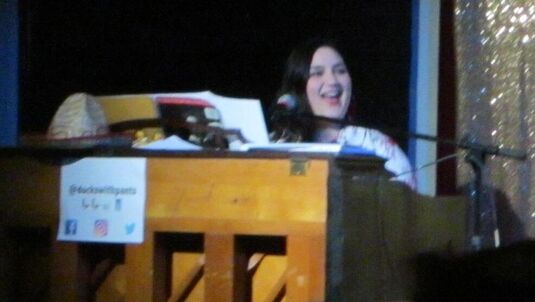
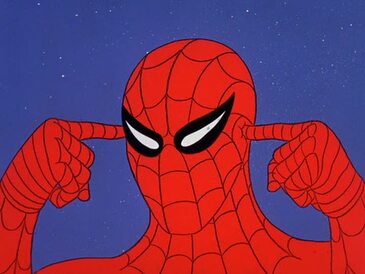
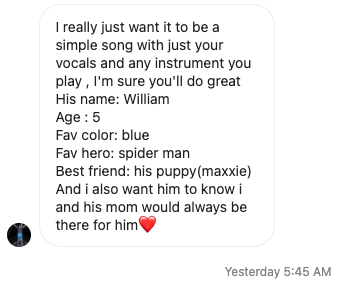
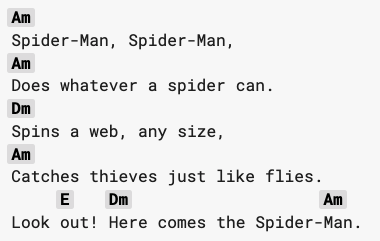
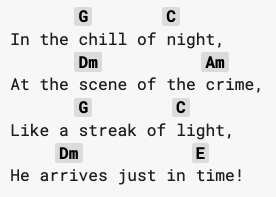
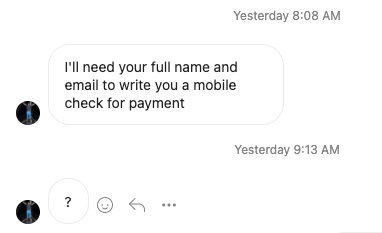
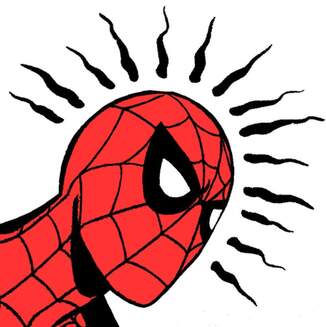

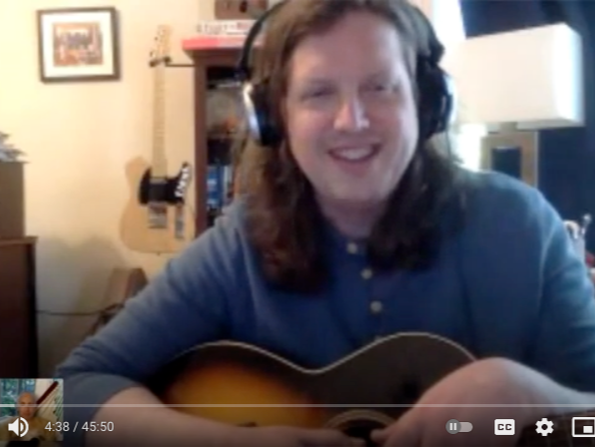
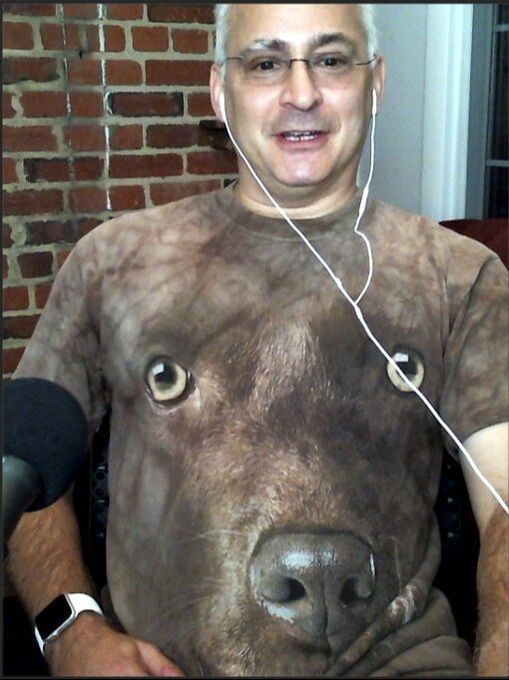
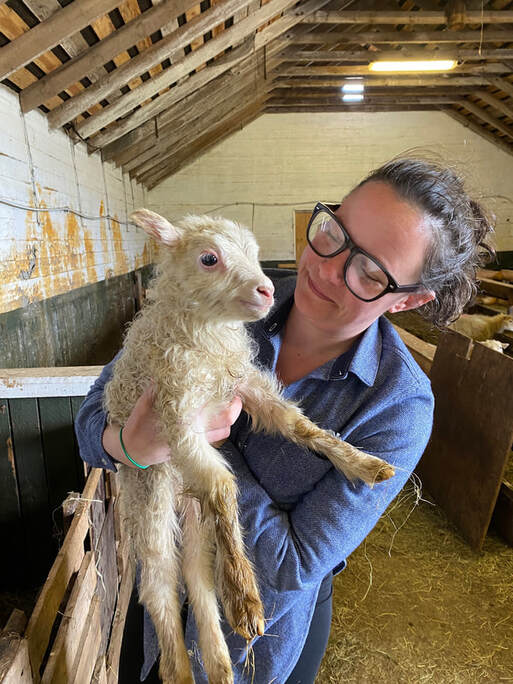
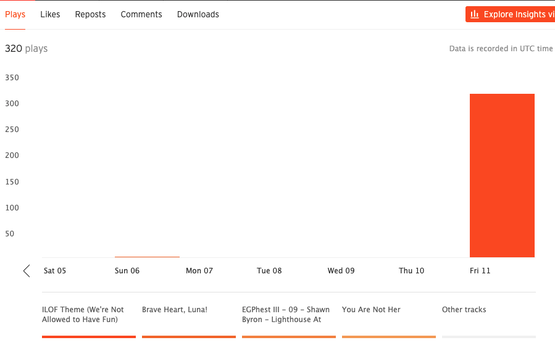
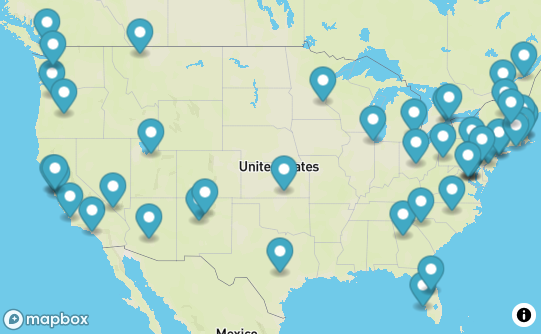

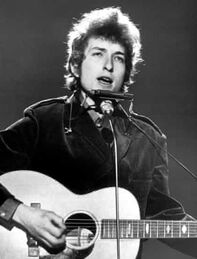
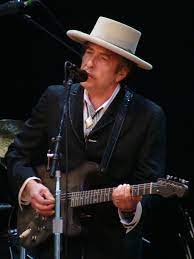

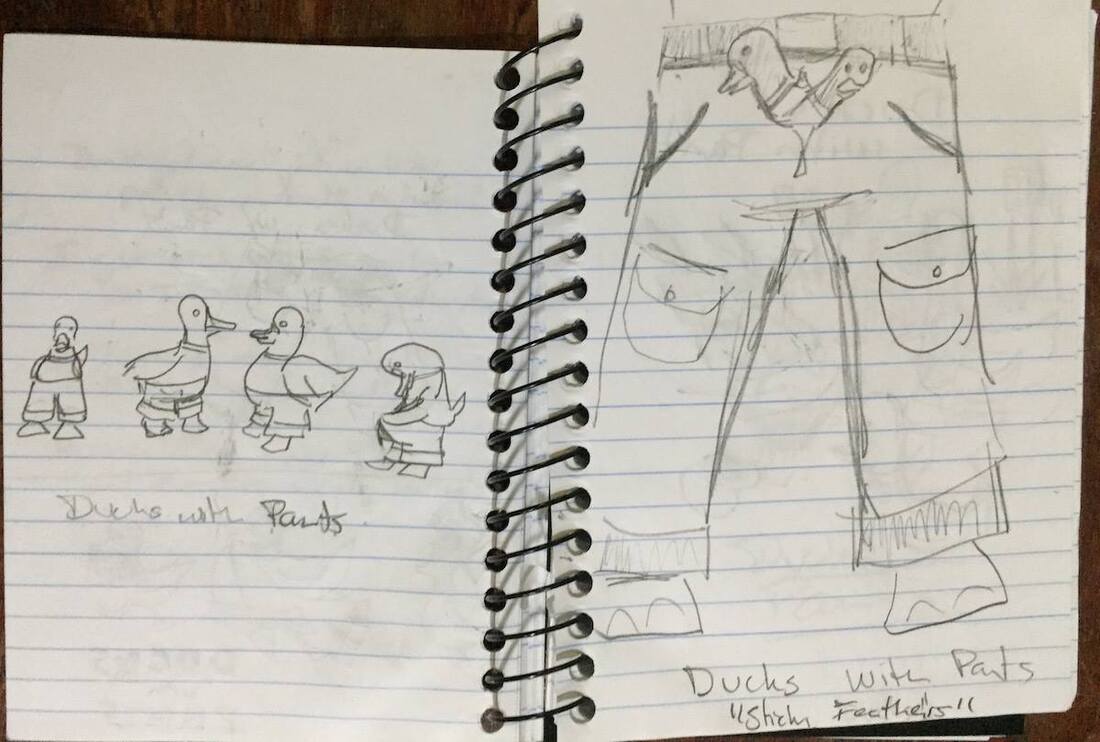
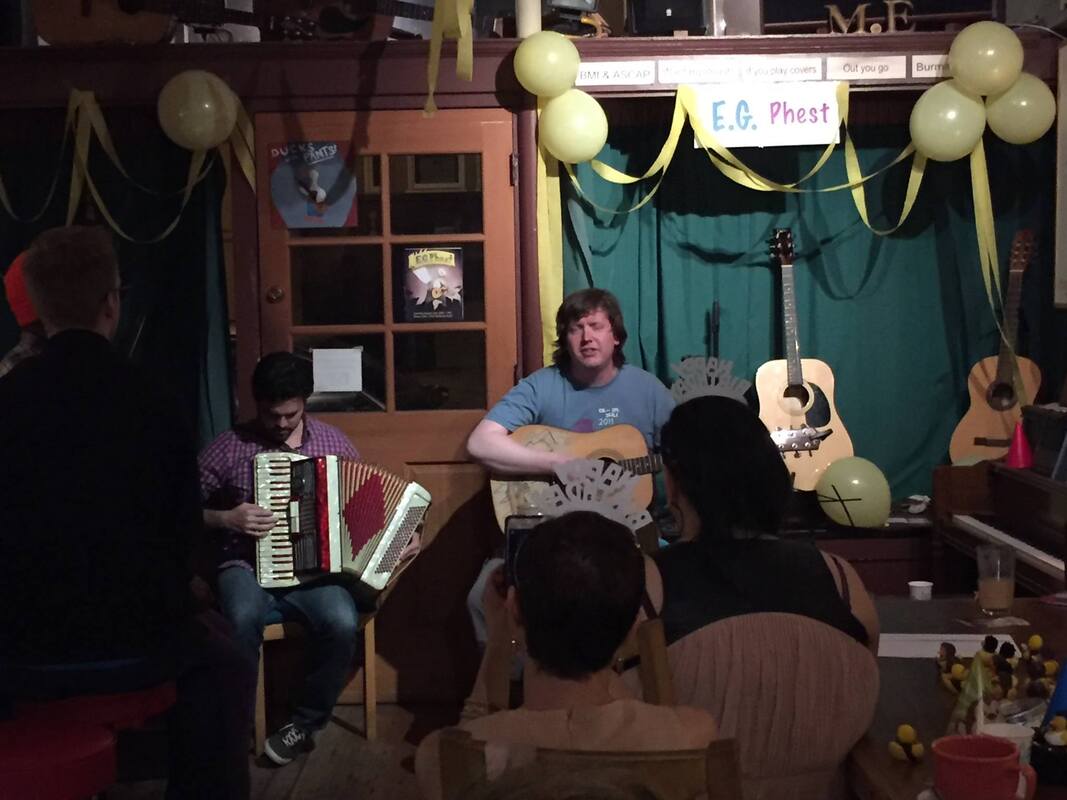
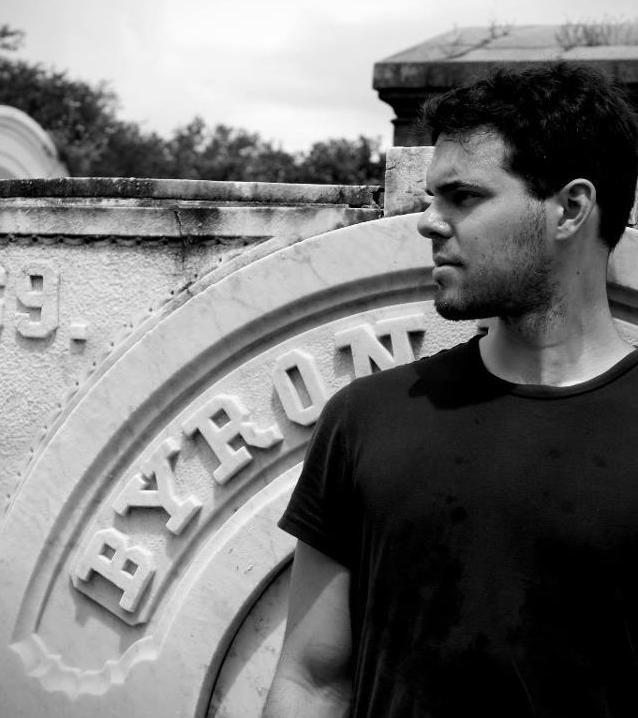
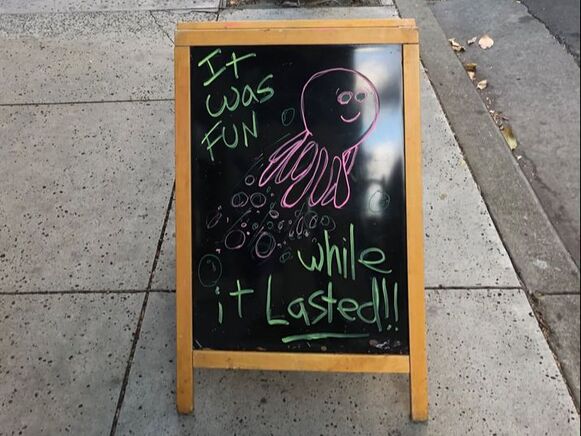
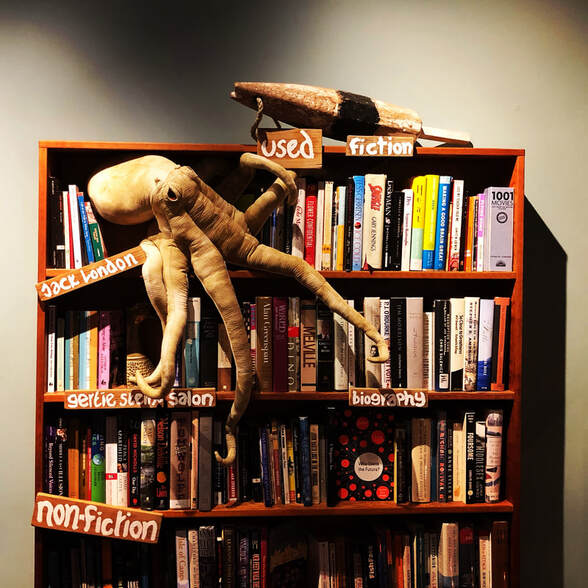
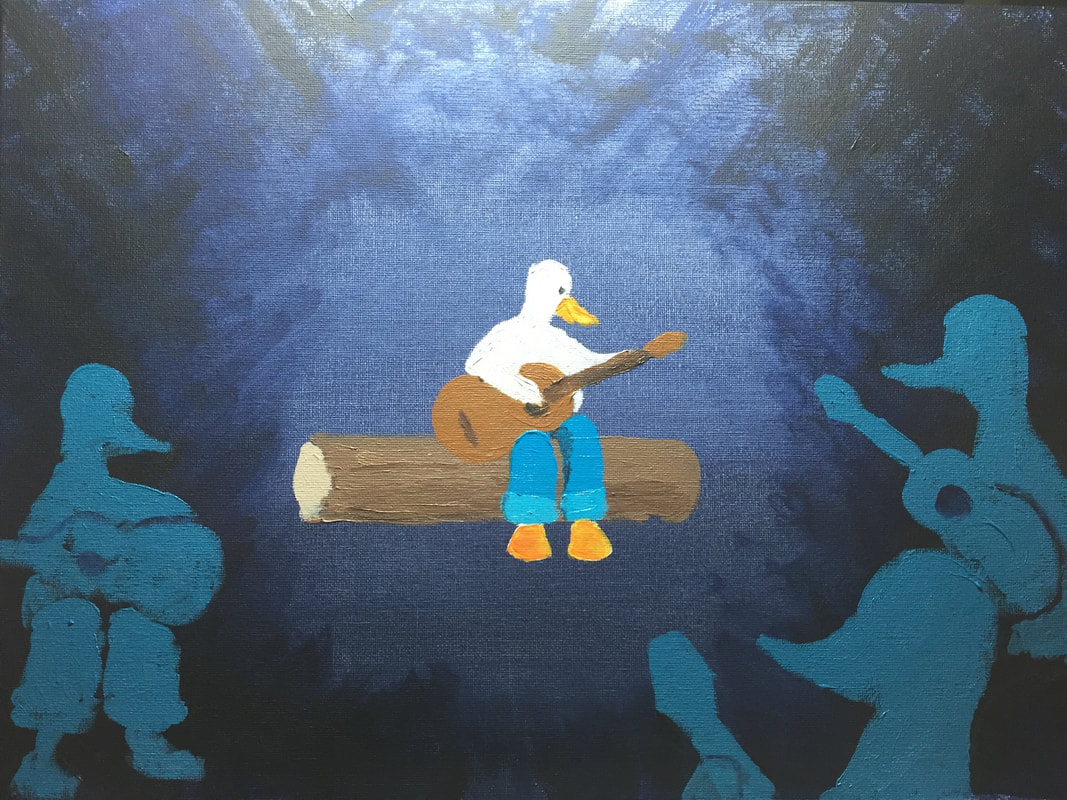
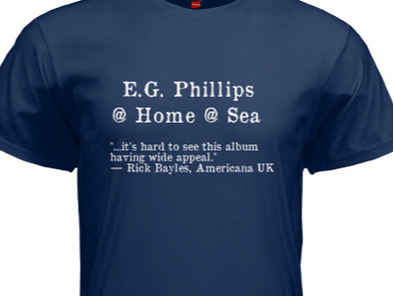
 RSS Feed
RSS Feed